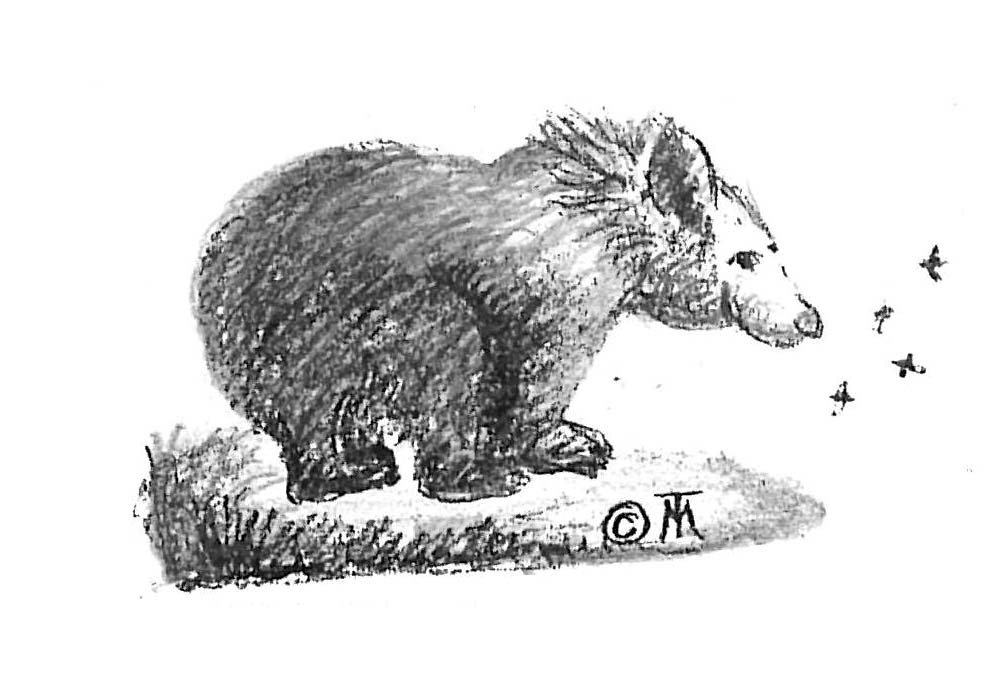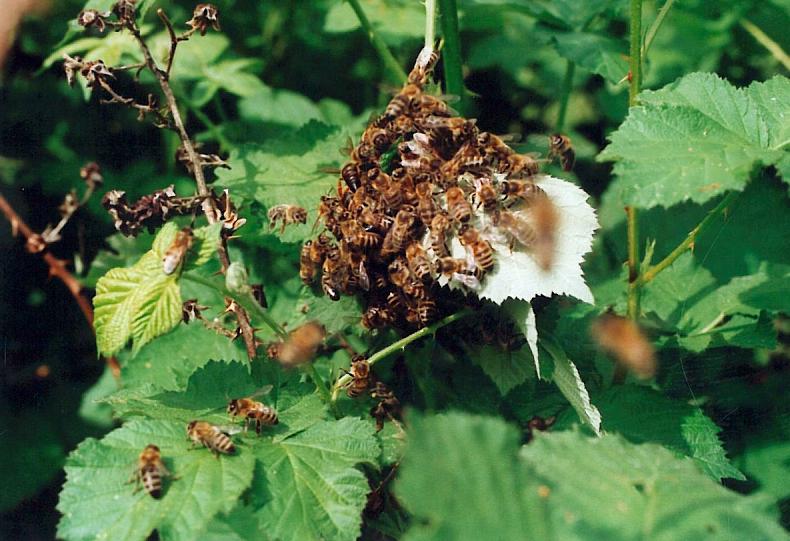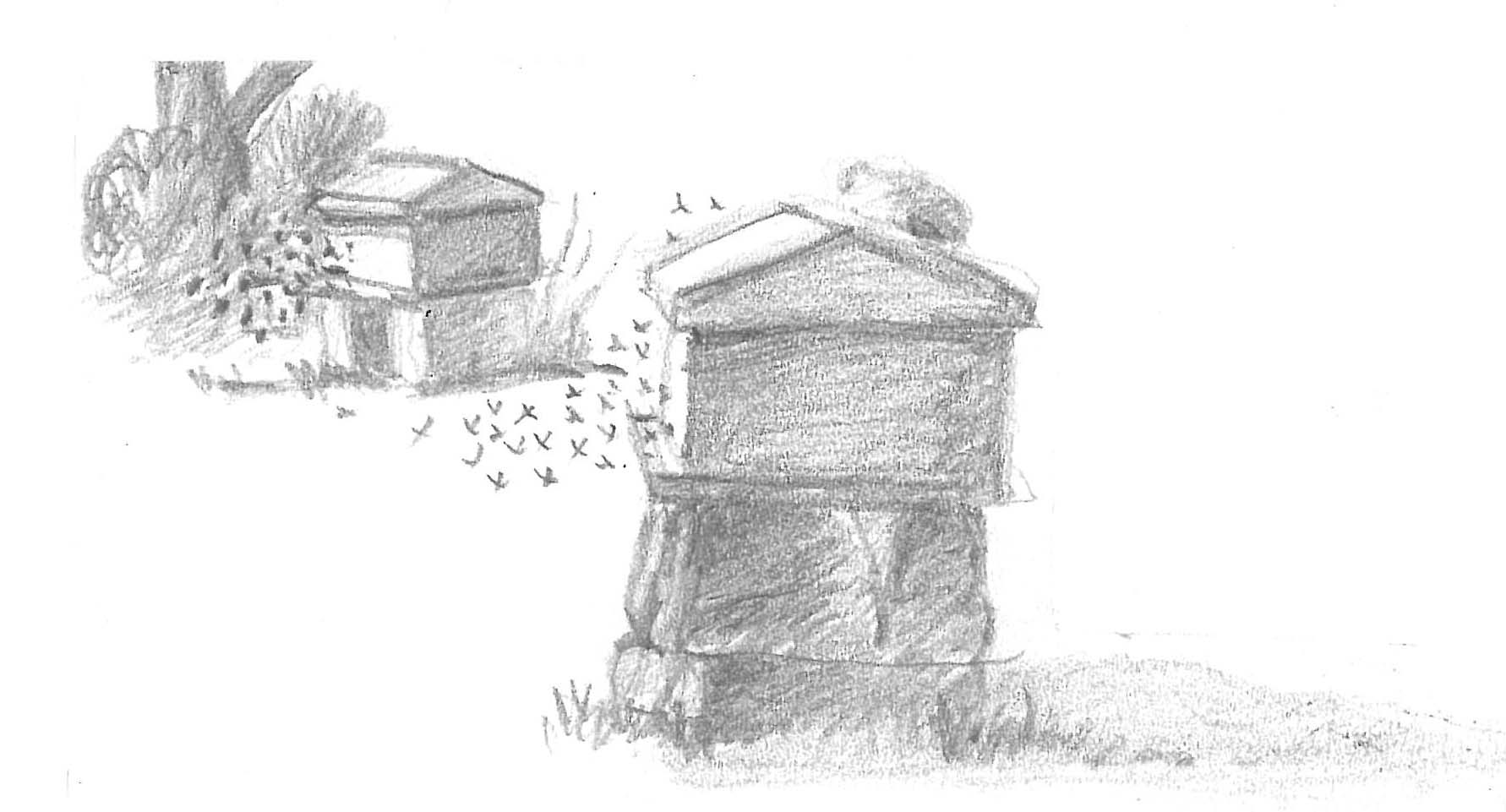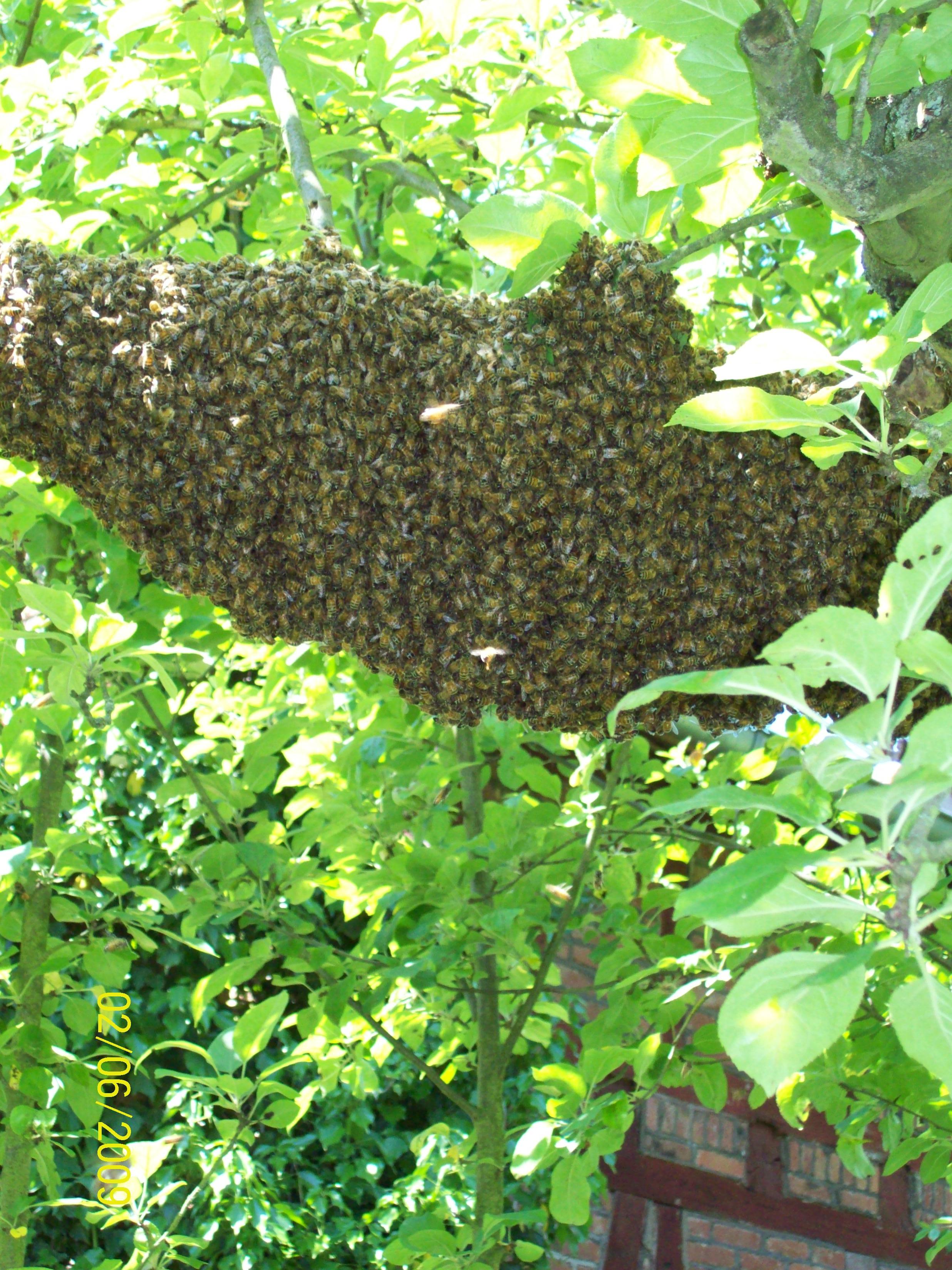



Sign
up for bee-therapy | Beauty-cure
| Anti-aging | Infertility
| Cancer
of the breast | Hashimoto-Thyreoiditis
|
Crohn's disease
Rheumatism
| Juvenile idiopathic
arthritis | Heart
diseases | Arteriosklerosis
| MS |
Diabetes
| Neurodermitis
| Obesity |
Depression
and Psychosis
Allergies
| Alzheimer
/ Parkinson | Diseases
of the kidneys | Pancreas
| how
to improve fitness of the body
Propolis
| Beeswax | Royal
Jelly | Organic Honey |
Comb
in the Comb | Raw Honey
| Organic Beekeeping
Basic Course
Expertise
| Courses | Home
| Research | Save
Beecolonies-Bienenpatenschaft | Certification
| Training Apitherapy
Farming, Manifold Landscape
And The Socalled "Third Industrial
Revolution" Part III
So as to accompany
the production of foodstuffs by a certain aesthetics of the landscape and
animal husbandry specific to species resp. character (especially ecological
cattle -, pig -, poultrybreeding and not to forget apiculture*) , it is
high time, that GMO - researcher move to provided security terrain. The
keywords are „Bioconfinement " and „foolproof system ". That means, an
application of the genetic engineering must be so „foolproof" , that no
side effects are going to be expected.
Because nothing is more obvious than crossing the road of some perfect
strangers who assert: „genetic engineering is safe", „Let us eat some genetically
modified food! ", or cloning researchers setting up their „milkmaid-account",
or „beer-account": ‘You must not forbid a technology already therefore,
because abuses may follow’ - according FAZ a very shortsighted, if not
even a stupid sentence, „because it lets drop every argument of technology
risk assessment with the comment: That isn't our beer" (1).
Mr Christian Geyer of the FAZ reproaches the GMO - researchers with
„blue-eyed abstraction" , because research can itself not place simply
on the standpoint: Misusage cannot cancel out the utility value. „As global
legitimation formula this sentence is not up to date in the era of large
scale industry and networked indirect results" (2). The right of usage
defines itself about its possible misusage, and admittedly the more this
misusage arises and the more it reaches into important dimensions. „That
apply especially in the intercourse with an highly powerful biotechnology"
(3) which can irreversibly intervene in nature. Just take a look at all
the genetically engineered plants and animals, as well microorganisms and
often
described side effects - last but not least on honeybees and cultural landscape.**
The president of the german Science Foundation Ernst-Ludwig Winnacker
described the therapeutical cloning as a „wrong way" (FAZ from 13. February
2004). In issue 1/2003 of new Online magazine „Natural Sciences" I had
pointed out the wrong premises in genetic
engineering (4). According to FAZ, Winnacker 's pleading for self-restraint
because of insight in the conceivable technology risks are not shortsighted
but farsighted. „Research is always premises leaded and in this sense never
result open. The distinction of way and wrong way belongs to professional
routine of science" (5).
Less professional decisions are usual in politics and science: the chairman
of the research committee in the Bundestag (Federal Lower House of Parliament),
Ulrike Flach (FDP) for example gives her „that’s not my beer" by saying:
„If therapeutical cloning prove to be feasible, we should allow it in Germany"
(6).
Let’s listen to other voices from politics and science, for instance
to the chaiman of the Union in the Bundestag, Thomas Rachel: „It shows,
how careless the Federal Government has acted, as they prevented with their
vote behaviour on EU - plane a comprehensively clone prohibition and supported
an adjournment. Only one single vote - the German - had been decisive.
Researchers in South Korea had now the time, without international proscription
by a convention, to clone a humanly embryo and to harvest parent cells"
(7). The president of the Federal Doctors Chamber Jörg-Dietrich Hoppe
said: „ we must stop the feasibility delusion and quickest possible come
to an international clone prohibition. We can not permit it, that embryos
get breded as raw material suppliers. If we place humanly living in the
arbitrariness of commercial disposition, then no ethics of the world will
be able to rescue us" (8).
As expected, pro-GM science journalist of the FAZ Joachim Müller-Jung
joins the debate in his own way: He reports from the die „American Association
for the Advancement of Science" (AAAS), and „Science" their publication
organ, in which the work of the South Korean Woo Suk Hwang -- by this worldwide
known as „Taboobreaker" (9) – has been printed. The keywords are: „visionary
conferences on clone - and parent cells research" (10) and „a congress,
which dances around the clone" - with Mr Hwang in the center. „Now the
AAAS, which always employd itself for the research on embryonic parent
cells and therapeutical cloning, could present their heroes in Seattle"
(11). Mr Müller-Jung described Mr Woo Suk Hwang as „Prototype of the
positive do-gooder, a model boy" (12). He sleeps only four hours, makes
korean yoga and the rest until midnight he spends in the lab, or at the
cloned animals. „His largest merits till now he had earned in the animal
barnstable. Not less than forty cloned animals, principally cows and pigs,
he has already produced, and that with an effciency, for which he get envied
by many clone researchers. If such a master and innovator, as Mr. Hwang
in Seattle unnumbered times, turns with the words 'forbid is no solution'
to the leader and thinker of this world, then also the organizers of those
science racket have reached their aims" (13). - so far Mr Müller-Jung
and his „that’s not my beer".
Researcher casted in the same mould as Mr. Woo Suk Hwang suppose to
be able to create human beings, animals, or plants by cloning resp. genetic
engineering; however, what they estimate to be a creation of a living being,
sounds more like a type of fuss over on some toys, or else any technical
units, as it is not so unusual in childhood . At the end the child will
be scolded, because it has fussed over the unit until it got broken. Let's
have a look how such a „cloneday" begins in Seoul: „Exactly 10.30 a.m.
comes the cart-load from the slaughter house to the Seoul National University.
In the building 85 waiting already about a dozen researcher, wrapped up
in sterilely lab suits, for the ovaries. The organs of the cattle and pigs,
a total of more as 300, will be careful slit, the infinitesimal eggs extracted.
Under the microscope will be pricked in the best specimens a little hole
and the nucleus with the hereditary information pressed out. That is the
beginning of a procedure, for cloning animals" (14). In the local media
the cloning of human beings and animals cause predominantly positive echo.
Similar as in England, Estonia, Lithuania and Saudi Arabia (15) shall the
State become a main player in the biotechnology. In the daily newspaper
„JoonAng Daily" it is said: „An advanced, future oriented biotechnology
- industry could serve as a source for prosperity of the nation" (16).
Nevertheless is the parent cells research also in South Korea not uncontoversial.
The protest comes from Christian groups, buddhists, citizen movements.
The controversy will be less carried out in the „official" media than in
the Internet. Briefly, the researchers around Mr Hwang are considered to
be fanatics, who work saturdays, sundays and on holidays and show up a
consistent unhealthy lifestyle (17).
What can these researchers be recommended? Christian Schwägerl
(FAZ) thinks, they should let their shares depots unobserved and climb
on a nearby mountain, or go in an unhasty forest. They should take a sheet
in hand, observe a tree, watch one bird, see the reflection in a clear
runnel. - To participate a course
for stressed manager may also be an option. The query is: „Are we doing
good to the living, if we industrialize its ground forces? " (18).
Mr Hwang wants to help in disease control, but in fact he distributes
diseases by cloning of animals. Cloned animals as known are all but healthy
animals; occasionally they are just tantalized like for example cows, getting
trimmed to an up to forty percent upper milk production through so-called
„recombinant Bovine Growth hormones (rBGH)" , or chickens, forced to vegetate
in close cages - also poultry keeping in the Asian area must be named in
this connection. Asian traditional animal husbandry conditions can not
be compared with European free range husbandry: „On the markets you can
see the poultry in most miserable positions. Pendulous to spears, plucked
and not plucked, dead, or wincing, downwards the head, or up. Apart from
the lucratively fighting cock, well-kept from his keepers and caressed,
the common poult receive the thinkable most brutal treatment: Heads get
declined, wings broken, the transport notion is valid not to an animal,
but a thing (.. .) the human being - poult - relation as a metaphor for
the coldest utilitarism" (19). - so Jochen Buchsteiner of Frankfurts generally
newspaper.
Cruelty to animals** don't remain without consequences for the human
being. One may ask, does exist a connection between the gruesomeness towards
animals and a considerable increase of virus diseases like SARS and bird
influenza? „Strikes the poultry empire back now? " (20). 80 Millions piece
poultry to kill in the region (21), is only ostensibly a solution. Required
is a long-term planning and expertise in
the fields of medicine, organic / ecological animal breeding in general
and ecological, or better husbandry specific to species (cattle -, pig
-, poultrybreeding and beekeeping)
in the particular*.
___________
*)
More information and address source for Bee-produce from beekeeping
considering the character of bees - for instance: comb honey with
natural cristalization (not heated) and honey from natural combs
(neither extracted nor stirred nor heated before filling) as well as pure
beewax without residuals under :
List
of beeproduce
Centre
for Social Medicine and Natural Apitherapy
Centre
for Ecological Apiculture.
Beekeeping
courses (practical and distance) in the Centre for Ecological Apiculture:
start now with ecological top-bar-beekeeping for beginners!!
**)
see also "Apicultural
Review Letters I"
Notes and literature
see full version
Full version going to be issued in: Natural
Science Vol. 3 Issue 1/2004
Copyright
© Centre
for Food Quality

